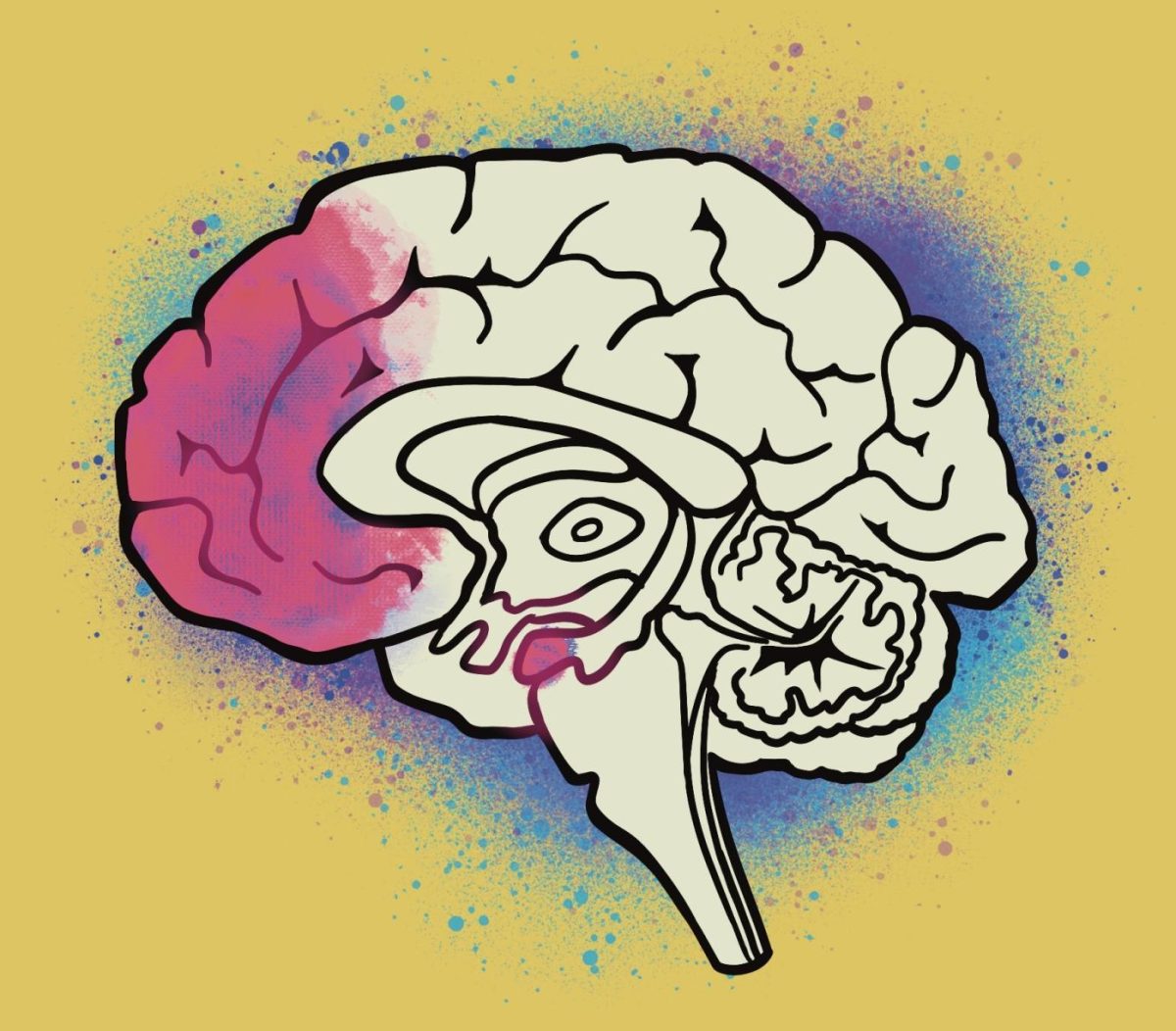A teenage girl lays slumped against a washing machine, a blunt dangling precariously between her fingertips. In another other room, music blasts from speakers, wisps of smoke hover above teens toppled upon bile-stained furniture.
This is just one of several scenes from the critically acclaimed 2019 HBO drama, “Euphoria.” But junior Faizan Kashmiri said portrayals of rebellious teens like those depicted in “Euphoria,” do not accurately depict real teens.
“(Euphoria) is frankly an awful depiction of teenagers,” Kashmiri said. “The media depicts teens as totally irrational, sex-crazed, drug-taking social parasites who add nothing to society.”
The human brain undergoes continuous development past a person’s mid 20s. During teenage years, ages 13 to 17, the brain is solidifying the prefrontal cortex, responsible for rational thought and decision-making.
In addition, the amygdala, a major processing center for emotions, grows in size, causing heightened dopamine levels and emotional variation.
So, it may be that neurological changes in the teenage brain are the cause for society’s interpretation of teens according to science.
AP Psychology teacher Christopher Farina said these neurological developments can cause teens to often make risky decisions without evaluating the consequences.
“(Teenagers) are even more highly motivated by rewards than they would be either before their teenage years or after their teenage years,” Farina said. “They can also be more impulsive at this age than they will be later because their prefrontal cortex is still developing.”
Senior Carina Tong said biological differences between adults and teens don’t mean the latter are unable to make mature decisions, though.
“Only a certain chunk of all teenagers (act rebellious),” Tong said. “I was never very rebellious. I always listen to my parents. And most of the time I agree with what my parents are recommending me because I trust them, and I’ve come to see that their advice overall is helpful for me.”
Tong said when teens do act up, they may be reacting to problems in their internal or external environment such as tensions at home, mental health problems or stress.
She said people of all ages react to these issues so teens should not be labeled as rebellious for their behavior.
“No matter what point in life you are in, you’ll be able to relate to these (issues),” Tong said.
Farina said teens are also in an environment that allows for risk-taking behavior because they are still protected by their parents and school.
Because of this protection Farina said teens can explore independence without the fear of the severe consequences that adults might face.
“During this age, (teens) are looking to strike off on their own and start separating from their parents or caregivers,” Farina said.
According to “Brainstorm,” a scientific book on teenage development by UCLA Professor of Psychiatry Daniel Siegel, teens often don’t act with bad intentions, and they shouldn’t be seen as disruptions to society.
“Adolescence is not a period of being crazy or immature,” Siegel said. “It is an essential time of emotional intensity, social engagement and creativity.”
Farina said trends indicate teens are acting much less rebellious than they have in the past decades because teens are now more likely to be with their parents for longer periods of time and are d less motivated to seek independence.
“Teenagers nowadays are safer than they’ve ever been,” Farina said. “A lot of those stereotypes out there about crazy drug use, alcohol use, parties and unsafe sex have actually been steadily declining over the past couple of decades.”
Tong said the stereotype that teens are rebellious may stem from generational differences that make it difficult for adults to understand teens.
“Each generation of teenagers is raised under different environments with differing levels of technological and social advancements,” Tong said.
Instead of reinforcing the belief that teenagers are immature, Kashmiri said society should treat teens with respect.
“If you start looking at teenagers as not just a bunch of morons, but as people who are on their way to total autonomy and adulthood who deserve time and respect, you’d see rapid improvements,” Faizan said. “You would see (teens) willing to take on more positive responsibilities and willing to think through (their) actions a bit more.”




